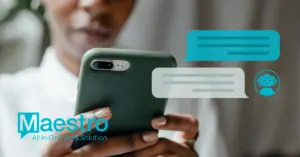Google Translate Helps Bring The World Together in Russia
The World Cup may be the largest gathering of the international community outside of the Olympic Games every four years, and while the atmosphere may be jovial, there are natural logistical issues that come with an influx of international tourists to a host nation. The language barrier is the most glaring one, and while soccer might be a global language, tourists still need to eat, find lodging and maneuver around a foreign country.
At this year’s World Cup, people are learning they are able to communicate with Google Translate—usually by creating written text on their computers and phones, but sometimes with the app’s voice feature—to buy and sell, and even just to give casual compliments. Of course, you have to be careful, because the translator is still imperfect. As Reuters notes, a user may try saying that Russian women are beautiful, and end up saying, “Old women are very beautiful.”
Reporters have also used the technology to ask questions to players in their native language after matches, according to Reuters.
Google Translate is an AI that involves deep learning. “Deep learning” doesn’t mean the AI actually understands what it is translating; rather, it means that there are many layers of nodes in the artificial neural network (ANN). The more layers of nodes an ANN has, the more complex things it can learn. And language is certainly complex.
With an ANN, the more information it is given, the more accurate the ANN becomes. In the case of language, the more accurate translations of sentences from one language to another it receives, the better the translation becomes over time. This is why Google Translate has improved over time, and it is why it asks users for better translations of what it provides.
So while Google Translate is hardly going to replace the world’s translators of great literature or the interpreters at the UN anytime soon, it can certainly help tourists get around in places where they are not likely to have learned the language.








